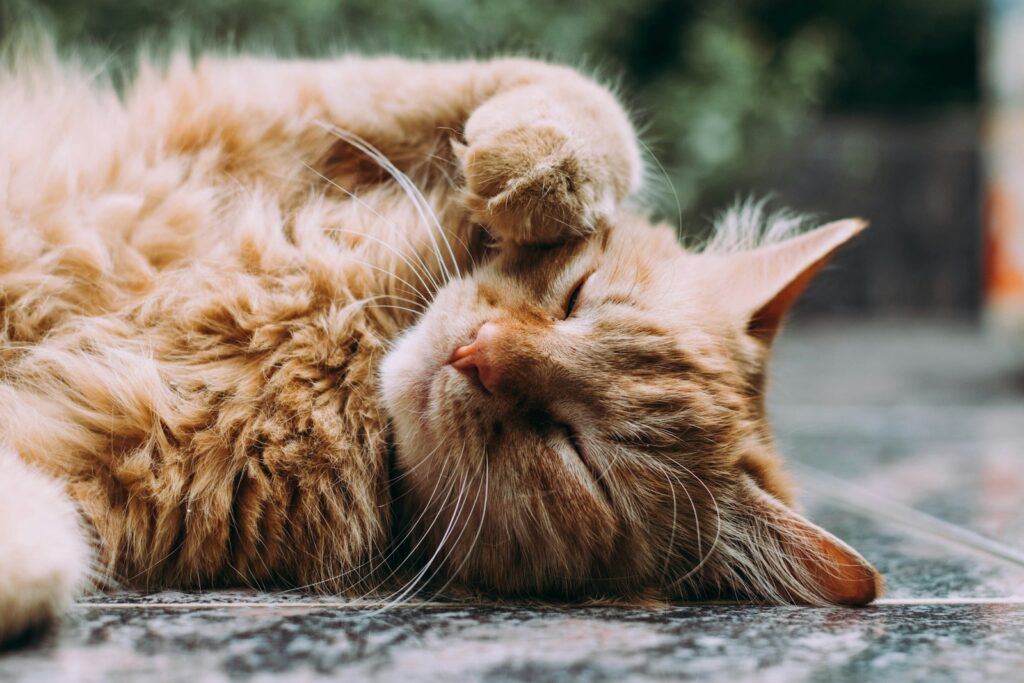If you believed that cat’s are merely lazy loungers who nap in sunbeams and knock things off shelves for fun, reconsider your opinion. Science and anecdotal evidence both suggest that cats are highly intelligent creatures, often outsmarting their owners (and their environment) in unexpected ways.
Indeed, when defining intelligence as the ability to acquire, retain, and utilise knowledge for problem-solving, cats demonstrate exceptional intelligence. Let’s explore just how clever your whiskered companion really is—and what it means for you as a pet parent.

Curious, cautious, and calculated
Watch what happens when a cat enters a new room for the first time. Rather than charging in like a puppy, she’ll pause, scan the environment, and start to explore with purpose. A cat sniffs every corner. She analyses every sound.
This behaviour isn’t just classic cat curiosity—it’s survival instinct. Cats are hardwired to assess their surroundings for threats and opportunities. For centuries, this cautious behaviour has helped them thrive in unfamiliar settings.
It’s no wonder they earned a reputation for having nine lives. Their environmental intelligence plays a huge role in keeping them safe. Unlike many pets, cats evaluate potential risks before taking action.
RELATED: How to Create a Cat-Friendly Home Without Compromising Style

Cats are strategic problem solvers
One of the strongest indicators of animal intelligence is the ability to learn from experience—something cats excel at. Through observation, repetition, and trial and error, cats can develop what researchers call “learning strategies”—a”trait shared with primates and some bird species.
Ever caught your cat:
- Have you ever witnessed your cat opening cupboard doors?
- Did your cat ever try to open a partially closed door with their paw?
- Is it possible for them to turn on a tap, or are they just trying?
- Is it possible for them to scale the fridge by using chairs as steps?
These behaviours aren’t random—they’re learnt through experience, memory, and intent. Once they figure something out, they tend to repeat it, adapting it when needed.
ALSO READ: 10 Toys That’ll Actually Challenge Your Cat’s Brain

Emotional: learning by watching humans
Cats may not sit and “stay” like dogs, but they’re excellent mimics. They observe their environment (and you) constantly. If you’ve ever noticed your cat trying to turn a doorknob, push buttons, or interact with light switches, it’s likely because she’s watched you do it.
This ability to imitate actions and connect them with outcomes is a sign of social learning, which is relatively rare in non-human animals. Some cats even learn how to ring bells to signal when they want to go outside—or have mastered flushing toilets (though the jury’s out on whether that’s genius or chaos).
Emotional intelligence: cats can read the room
It’s not all about physical skills. Cats are also emotionally intelligent. Many owners report that their cat knows when they are sad, stressed, or unwell—and responds with comforting behaviour.
Recent studies back this assumption up. Cats can:
- Recognise their owners’ voices
- Respond to emotional tones
- Detect subtle facial expressions
- Adapt their behaviour in social situations
So, while they may not always appear loving in the traditional sense, they’re often far more emotionally attuned than we realise.

Limits of feline intelligence
However, it’s important not to overestimate their intelligence. While cats are smart, they don’t think exactly like humans—and expecting them to do so can cause problems.
For instance:
- Cats can’t reflect on the past. If your cat knocks over a vase and you scold her ten minutes later, she won’t connect your anger to her action. The moment has passed, and punishment becomes confusing rather than constructive.
- They don’t plot revenge. That midnight paw-swat wasn’t payback for the vet trip. Cats live in the present. Assigning human motives like spite or guilt to your pet often leads to misunderstandings.
That’s why understanding feline psychology is so important. It helps you create an environment where your cat can thrive—and where you don’t lose your patience trying to “train” them like a dog.

Why understanding your cat matters
By appreciating your cat’s intelligence, you can tailor your environment and routines to better suit their needs. This doesn’t just benefit your feline—it makes your life easier, too.
Try:
- Rotating enrichment toys to prevent boredom
- Creating vertical spaces (like shelves or cat trees) to satisfy curiosity
- Adding puzzle feeders to challenge problem-solving skills
- Letting them observe nature (windows are prime entertainment)
These small tweaks help stimulate their minds and reduce negative behaviours, like scratching furniture or excessive meowing.
Final thoughts: smart, sassy, and a little mysterious
Your cat may not speak your language or perform tricks on command, but she’s far more intelligent than she lets on. From navigating new spaces to mastering complex tasks, cats are constantly learning and adapting.
So next time your cat does something clever, take a moment to appreciate the brain behind those whiskers. She’s not just cute—she’s clever.
And the more you understand how she thinks, the better your bond will be.


